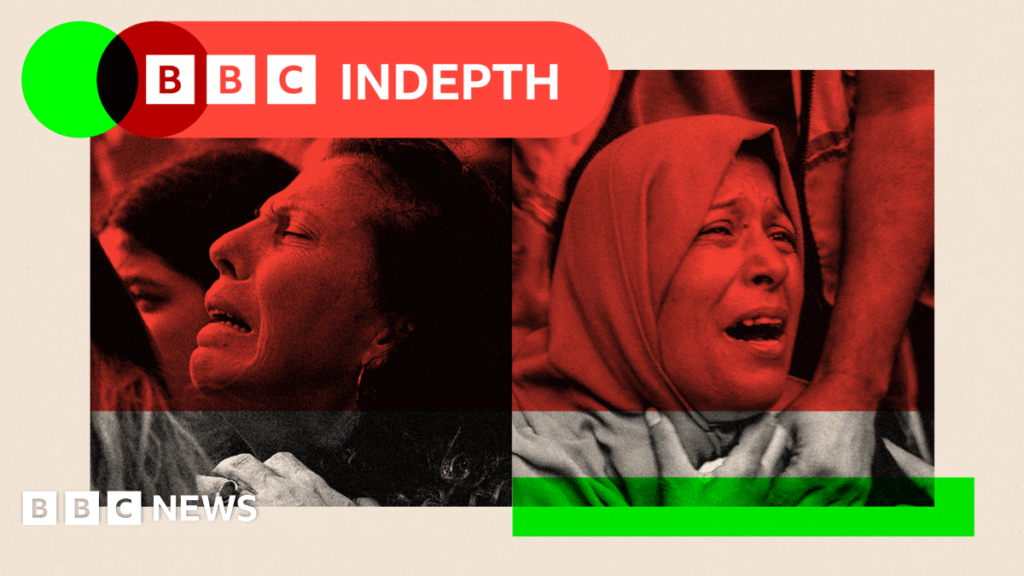After weeks of stunning tactical success, Israel’s prime minister seems to harbour grand ambitions.
In a direct address to the Iranian people, he hinted that regime change was coming in Tehran. “When Iran is finally free, and that moment will come a lot sooner than people think, everything will be different,” he said.
For some observers, his rhetoric carried uncomfortable echoes of the case made by American neoconservatives in the run up to the US-led invasion of Iraq in 2003.
But for all the danger of the moment, fragile guardrails do still exist.
The Iranian regime may dream of a world without Israel, but it knows that it’s far too weak to take on the region’s only superpower, especially at a time when Hezbollah and Hamas – its allies and proxies in the so-called “axis of resistance” – are being crushed.
And Israel, which would dearly like to get rid of the threat posed by Iran, also knows that it cannot do this alone, despite its recent successes.
Regime change is not on Joe Biden’s agenda, nor that of his vice president, Kamala Harris.
As for Donald Trump, the one time he seemed poised to attack Iran – after Tehran shot down a US surveillance drone in June 2019 – the former president backed down at the last moment (although he did order the assassination of a top Iranian general, Qasem Soleimani, seven months later).
Few would have imagined, a year ago, that the Middle East was heading for its most perilous moment in decades.
But looked at through that same juggernaut’s rear view mirror, the past 12 months seem to have followed a terrible logic.
With so much wreckage now strewn all across the road, and events still unfolding at an alarming pace, policy makers – and the rest of us – are struggling to keep up.
As the conflict that erupted in Gaza grinds on into a second year, all talk of the “day after” – how Gaza will be rehabilitated and governed when the fighting finally ends – has ceased, or been drowned out by the din of a wider war.
So too has any meaningful discussion of a resolution of Israel’s conflict with the Palestinians, the conflict which got us here in the first place.
At some point, when Israel feels it has done enough damage to Hamas and Hezbollah, Israel and Iran have both had their say – assuming this doesn’t plunge the region into an even deeper crisis – and the US presidential election is over, diplomacy may get another chance.
But right now, that all feels a very long way off.







